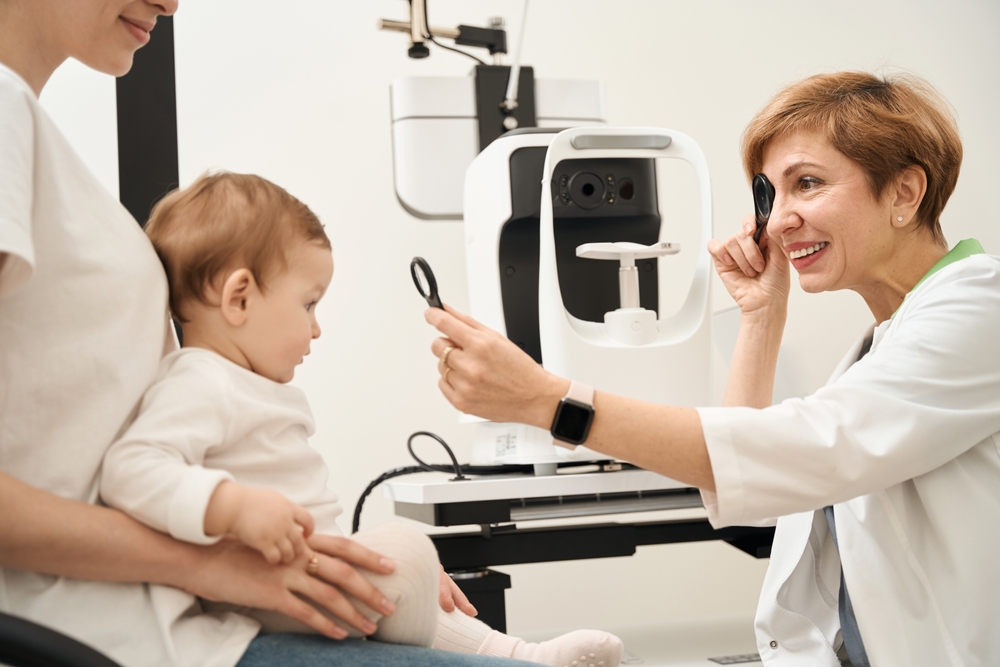
Every child benefits from good vision for their development and well-being. Experts estimate that 80% of learning for children happens visually, so it is essential to identify and address issues early. Read on to learn about the difference between pediatric eye exams and school vision screenings.
Pediatric Eye Exams and School Vision Screenings
Pediatric eye exams are comprehensive evaluations done by eye care professionals. These experts have special training in diagnosing and treating eye conditions in children. School vision screenings are brief assessments conducted by school volunteers or nurses. School screenings serve as an initial tool but should not replace comprehensive eye exams.
Scope and Depth Evaluation
Pediatric eye exams assess the following eye aspects:
- Visual acuity
- Eye coordination
- Depth perception
- Eye health
Eye care professionals can diagnose and treat many vision conditions and ocular diseases. School nurses or volunteers do school vision screenings. These screenings often involve different tests. These include reading an eye chart or identifying letters or shapes at a distance. The goal is to identify children who need further evaluation by an eye care professional.
Detection of Vision Issues
Pediatric eye exams can catch obvious and subtle vision problems. Eye care professionals can identify:
- Refractive errors
- Amblyopia
- Strabismus
They detect ocular conditions that may affect your child’s visual development. They can also detect underlying eye diseases and provide appropriate treatment.
School vision screenings can identify obvious vision problems affecting visual acuity. They may miss subtle conditions that do not impact immediate visual acuity. Children with such issues may go undetected. This may lead to potential learning difficulties or delayed treatment.
Eye Health Assessment
Pediatric eye exams thoroughly examine children’s eye health. Eye care professionals can detect and diagnose eye diseases, infections, and abnormalities which may go unnoticed in a school screening. Early detection of these conditions can prevent long-term complications and vision loss.
School screenings focus on visual acuity. They may not provide a comprehensive eye health assessment and may not catch potential eye diseases or underlying issues. This leads to delayed diagnosis and treatment.
Personalized Care and Recommendations
Pediatric eye exams can provide personalized advice. They advise patients on visual hygiene, eye safety, and preventive actions. They can prescribe glasses, contact lenses, or other corrective measures based on the child’s needs.
Regular follow-up exams ensure consistent monitoring and management of eye health. School vision screenings can help identify a child who needs further evaluation but they do not offer personalized recommendations or treatment options. Parents must schedule a comprehensive eye exam with an eye care professional. It can help with a more thorough assessment and appropriate management.
Collaboration and Awareness
Optimal eye health for children requires collaboration between schools and eye care professionals. Eye care professionals rely on information from school screenings to identify children who need follow-up exams.
They work together to ensure that every child receives appropriate eye care. Educating parents and teachers about screenings and comprehensive eye exams helps. It ensures that children receive the necessary care and support.
For more about pediatric eye exams and school vision screenings, contact Savaglio Family Vision. Our office is in Kenosha, Wisconsin. Call (262) 657-7850 to book an appointment today.







